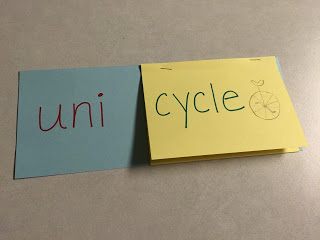Getting to the Root of Word Meanings
“If you speak English, you know a little more than 100 languages.” (Garg, 2011)
Learning prefixes, suffixes and root word meanings is an important aspect of vocabulary instruction. Once my least favorite method for vocabulary, but now it is one of my favorite. Many times while working on understanding the meaning of parts of words, it is very rewarding to see the “lightbulb” moment where they begin to understand words on a whole new level.
There are so many ways the parts of words can be taught that it can be mind-boggling! I like to break it down into two sections – Greek and Latin. Did you know that 50% of words have a Latin origin and 50% have a Greek origin? So, this is a great place to start.
Direct Instruction with Lists
You can find list of root words, prefixes and suffixes all over the internet. It seems daunting sometimes when you see a long, involved list. However, start with the most common words adding and deleting a variety of prefixes and suffixes to show students how to combine the information to create different meanings. Scholastic has a list of common prefixes and suffixes here.
Prefixes and Suffixes
White, Sowell and Yanagihara (1989) found that approximately 20 prefixes were used in 97% of all English words. Begin by taking the 10 most common prefixes, teach them and then work from there. The same research team also determined the frequency of suffixes. One way is inflectional endings: nouns (-s, -es),verbs (-ed, -ing, -en), and adjectives (-er, -est). Other suffixes are -ful, -less, -tion and -ly. Rebecca Miller, Ph.D. recommends using a Prefix Suffix Flipbook. You’ll find instructions to make your own here. She suggested flip books with the example of the prefix uni- with unicycle, uniform, and unicorn like the one below:
Games



